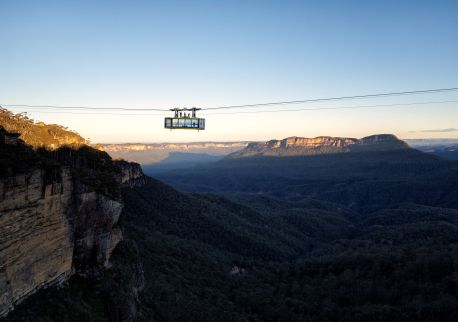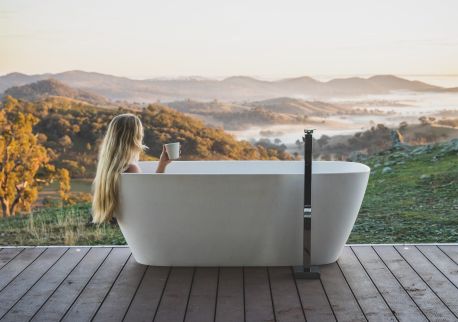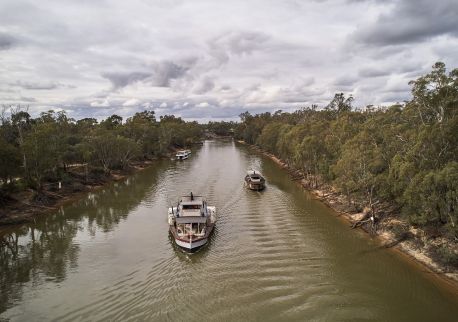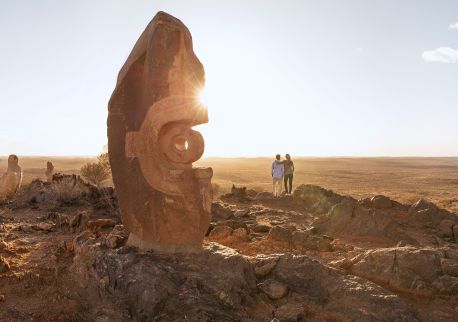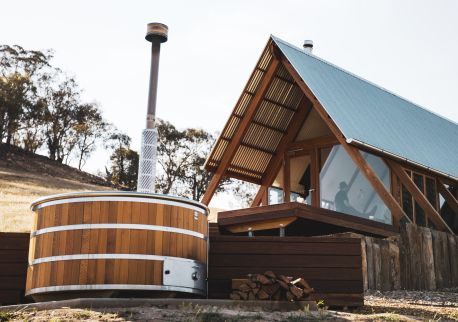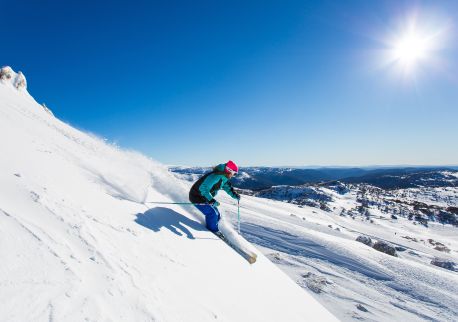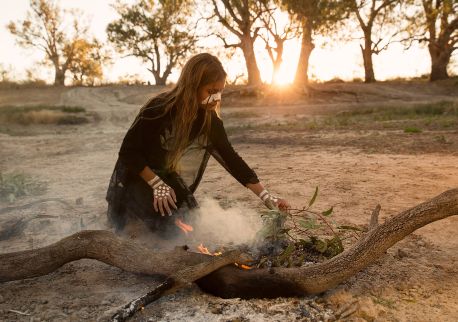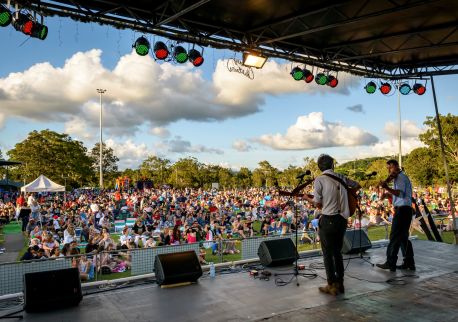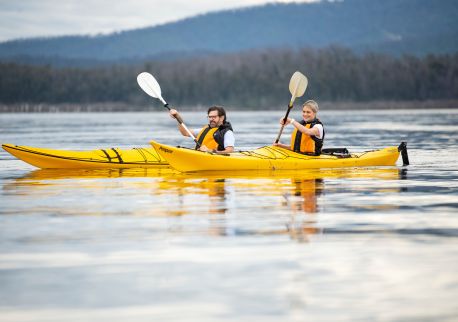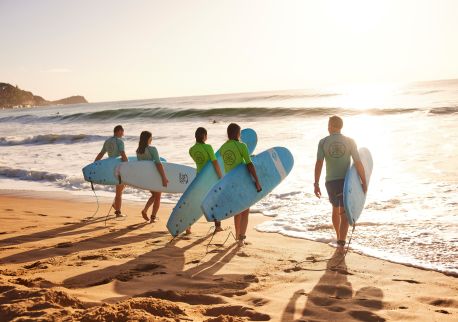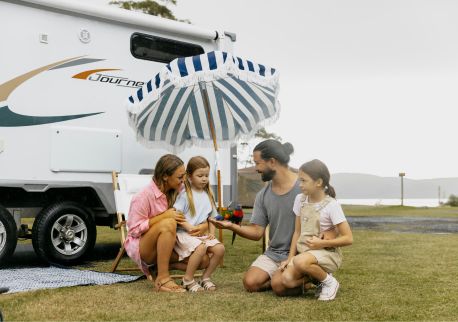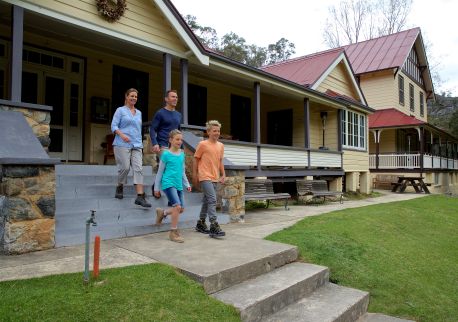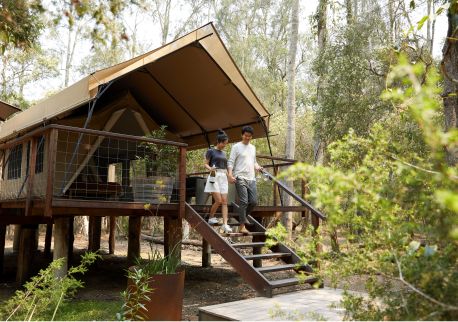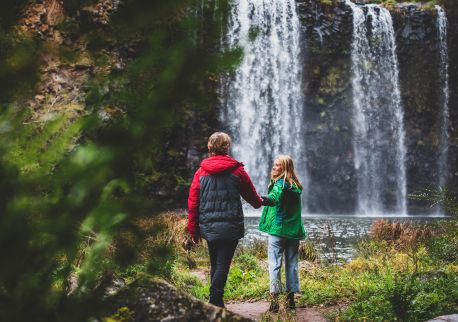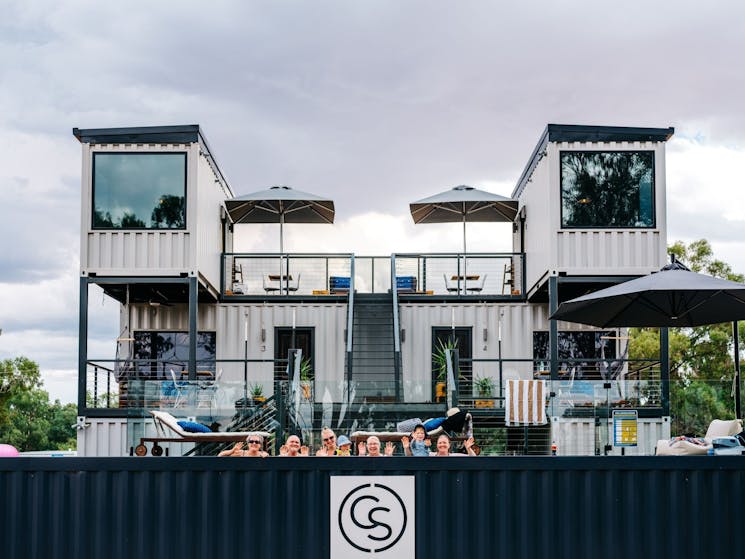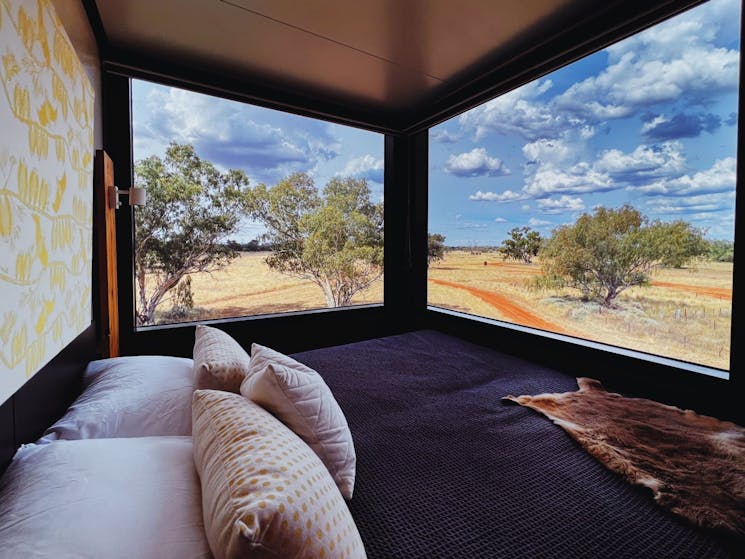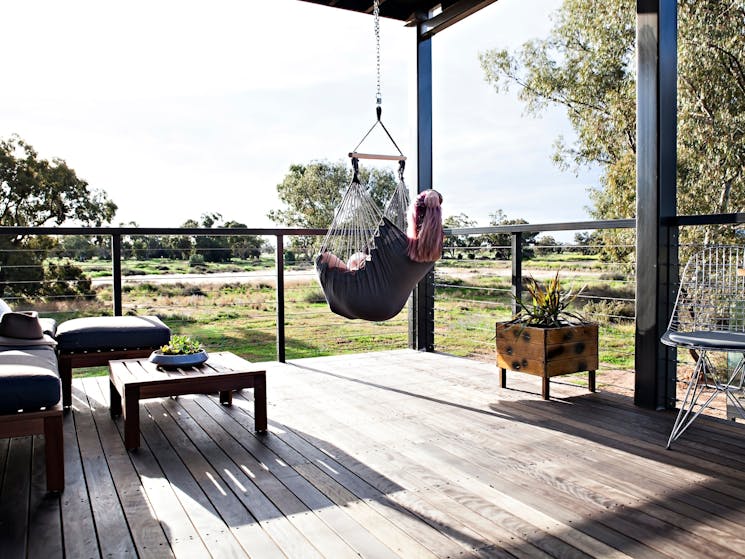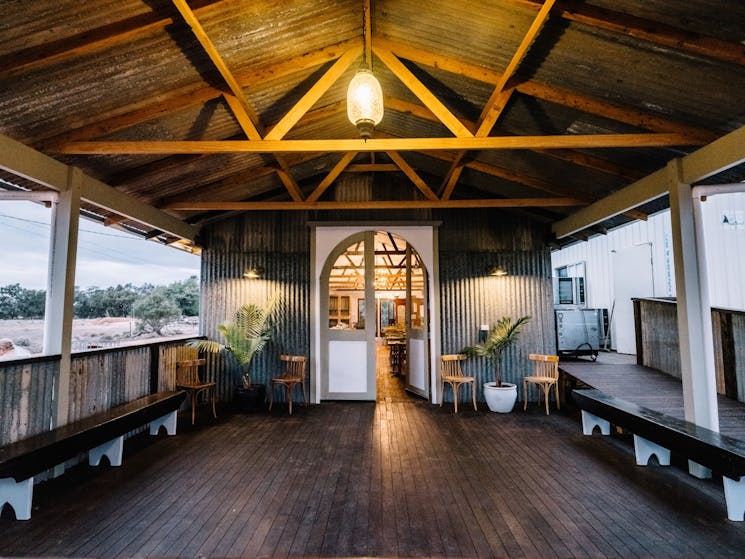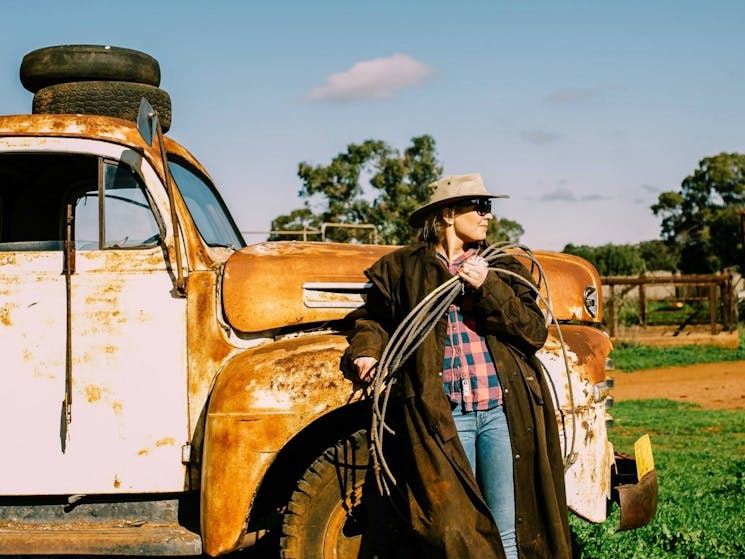Callubri Station
Highlights
Luxury Sky Suites with mineral pool and panoramic views
Authentic farm experience with paddock-to-plate dining
Overview
Callubri Station is a fourth-generation 28,500-acre Merino sheep and wheat station with a luxury all-inclusive, exclusive-use outback lodge, farm stay and event venue.
Nestled in Central West NSW, the fourth-generation property is steeped in more than 145 years of family farm history. Specializing in private group travel, it is easily accessed by private air or road charter.
The Sky Suites accommodates up to eight guests (king/twin) in repurposed shipping containers stacked three stories high with private views overlooking a 12-metre mineral pool. The River Suite accommodates a further two guests in an accessible king suite.
The Shearer’s Quarters Event Space is the perfect setting for corporate retreats, conferences, private events and weddings. This unique space offers Chesterfield lounges, a licensed bar, pianola and gramophone, a guest library and an air-conditioned/heated dining space along with an outdoor covered deck with sunset views and a dancefloor under the stars complete with a fire pit for outdoor dining. Telstra mobile reception and Wi-Fi are available.
A maximum of 10 guests (larger groups for day visits/events) are personally hosted by the station owners, Angie and Mike Armstrong, along with their dedicated team. Angie creates paddock-to-plate fine dining dishes that showcase the homestead’s produce. Mike’s in-depth knowledge of and connection to the land, imparts an unparalleled authenticity on his tours. Together, they offer a once-in-a-lifetime Australian outback experience.

